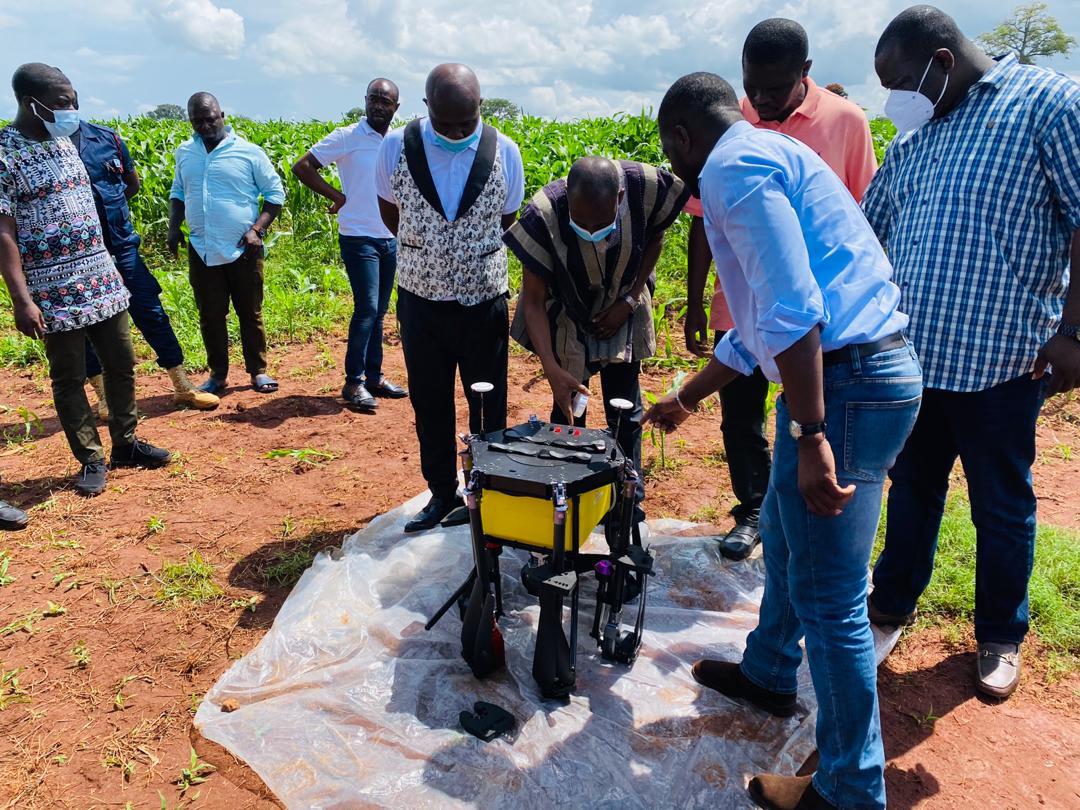The National Service Scheme (NSS) has resorted to the use of technology to improve efficiency and help boost yields on its various farms across the country.
The NSS is mandated to deploy Ghanaian graduates from the various tertiary institutions in and outside the country for a mandatory 12-month service to Ghana under Act 426 (1980).
The deployment is done to various sectors of the economy such as agriculture, education, health, local government, military services, and many more.
The Scheme in its contribution to the development of the country also engages in agriculture and owns farms in Dawhenya, Brenam, Damongo, Tantala, and Ejura which they cultivate maize.
“The NSS are also into animal production at Papao, Nungua, and Ohiamadwen”.
In April 2017, President Nana Addo Dankwa Akufo-Addo launched his government flagship “Planting for Food and Jobs” programme and expressed his renewed commitment to technology in agriculture by increasing access to improved seeds, subsidized fertilizers and machinery, financing and mobile agriculture extension services, and the Ghana Commodity Exchange among others.
He said, “ICT provides easier access to markets and information resources, and I have no doubt that if this is mainstreamed into our agricultural practices, productivity within the sector will be increased to ensure that not only will farmers’ input increase, but also the nation’s food security will be guaranteed.”
Mr Mustapha Ussif, the Executive Director of the NSS on Thursday led a delegation to the Scheme Ejura farms to have firsthand information on the use of drones to monitor the output at the farms and expressed the Scheme’s willingness to position its farms to enable them to fully implement the modern ways of farming.
Mr Ussif believed technology was created to make things easier, faster, and achieve high output and that it had become necessary for the scheme to also adopt that method.
He said the NSS farms had over the years been doing well to ensure that the planting and rearing for food and jobs was a success, adding, “We’ve also been supporting the free SHS with some bags of maize through the National Food Buffer Stock Company.
“We can’t continue using traditional farming practices if we truly want to continue playing a pivotal role in the growth of the country’s Agric sector”, he added.
The Executive Director also called on National Service Personnel (NSPs) to take advantage of the policies and programmes of government such as the Planting for Food and Jobs, Rearing for Food and Jobs and other initiatives geared towards encouraging the youth into Agric.
”The era where farming was said to be that of the old and poor is no more. Farming is now advanced and very lucrative. NSPs should position themselves and venture into Agric in other to be job creators and not job seekers.”
He admonished the workers in the farm to attach seriousness to their work and handle the drones carefully as it was a valuable asset to the scheme and the country.
Dr. Sagri Bambangi, the Deputy Minister of Agric minister said the current leadership of the Scheme had done a wonderful job to resuscitate its farms which took a nosedive under the previous administration.
He said: “Not only have this leadership revived the Agric projects, but also initiated the use of drone technology on their farms and this is commendable.”
Dr Bambangi said the Ministry through the support of President Akufo-Addo placed priority on Agric as its played an essential role in strengthening the economy, adding, “Programmes such as the one-village-one-Dam, one-District-one-warehouse, Planting for Export and one-District-one- factory to help process raw materials from the farms, and many more.
These policies he believed are programmes that clearly indicated that the government was visionary and serious.
The NSS Deputy Executive Director in-charge of Operations Mr Kwaku Ohene Djan and Mr Oxford Osei Bonsu the NSS Director of Projects explained to the delegation the roles and uses of the drones on the farms and also assured them that the drones technology will be used judiciously.
The drone technology is expected to be used for the application of fertilizers, Pest control mechanism, monitor crop health and growth rate, sowing, general surveillance, and many others










Discussion about this post